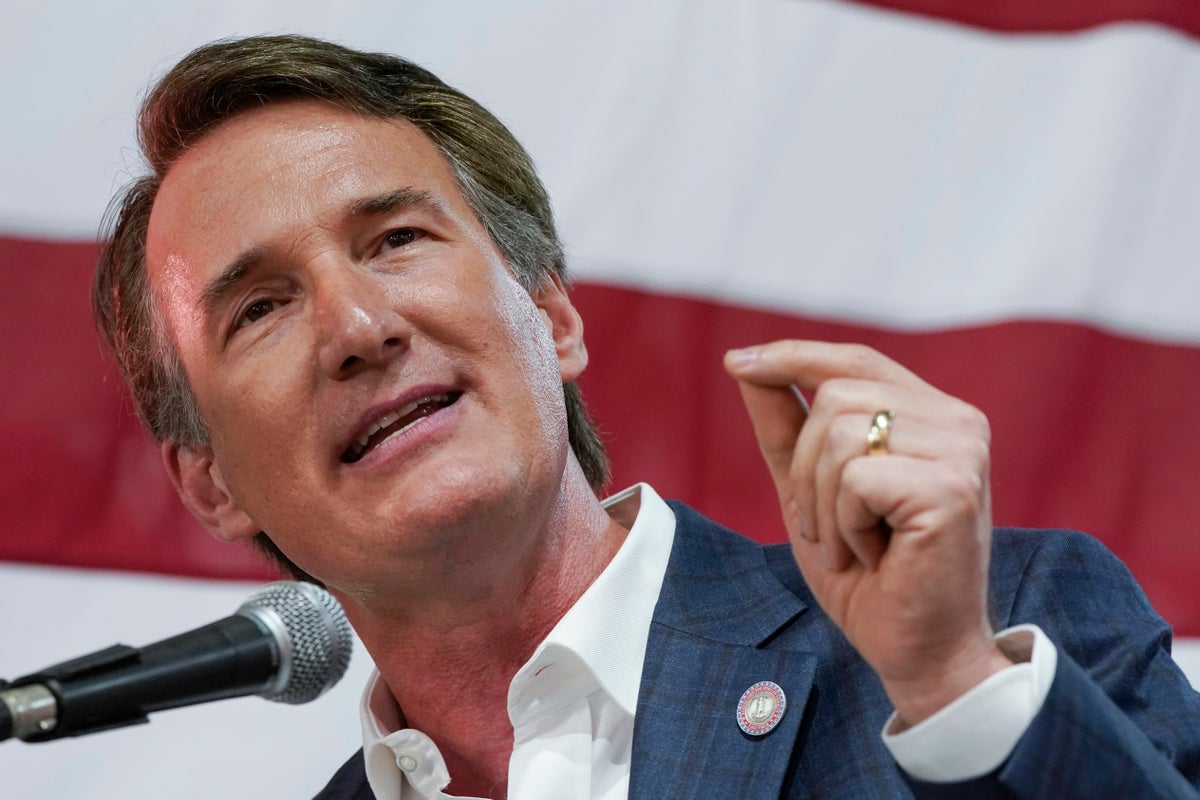
Months after withdrawing from a data-sharing interstate compact to fight voter fraud, Virginia Gov. Glenn Youngkin's administration on Wednesday announced a series of recent steps it has taken to improve the accuracy of the state's voter rolls.
Among them is the launch of new, individual data-sharing agreements with five other states and Washington, D.C., the Virginia Department of Elections said in a news release. The six agreements will enable Virginia to “securely compare voter lists” with Washington, Georgia, Ohio, South Carolina, Tennessee and West Virginia and “identify potential voter fraud” and duplicate registrations, the Department of Elections said in a news release.
“Secure elections start with accurate voter lists,” Elections Commissioner Susan Beals said Wednesday, two days before the start of early voting in this year's legislative elections. “Virginia now updates our voter list using data coming directly from one-to-one data sharing agreements with neighboring states and partnerships with state and federal agencies.”
While the department in its news release and a recent annual report held the new agreements and other initiatives out as improvements from the work of past administrations, Democrats argued they were no substitute for participation in the bipartisan Electronic Registration Information Center, or ERIC, which Virginia left in May.
"It’s undoubtedly not as good as ERIC. There’s just fewer states that are involved," said Aaron Mukerjee, an attorney and the voter protection director for the Democratic Party of Virginia.
Virginia was one of the founding members when ERIC was formed in 2012, an effort promoted by then-Republican Gov. Bob McDonnell. It's a voluntary system that aims to help around two dozen member states maintain accurate lists of registered voters by sharing data that allows officials to identify and remove people who have died or moved to other states.
ERIC has also found itself in the crosshairs of conspiracy theories fueled by former President Donald Trump’s false claims about the 2020 presidential election.
Beals in May gave several reasons for the decision to end the state’s membership. They included recent departures by what was then seven other GOP-led states, cost concerns, incomplete participation by Virginia’s bordering states and “increasing concerns regarding stewardship, maintenance, privacy, and confidentiality” of voter information. She said Virginia would look for other ways to “partner with states in an apolitical fashion” on the issue.
Andrea Gaines, a spokeswoman for the department, said in response to questions from The Associated Press about the new data-sharing agreements that “the process for sharing voter lists between states is underway and meetings between these states' IT teams have been occurring.”
She did not respond to a question about the estimated annual cost of the new arrangement.
Neighboring states North Carolina and Maryland aren't among those with which Virginia has reached a data-sharing agreement. But the department has reached out to all of its border states to initiate voter list comparisons as required by state law, Gaines said.
In addition to the new agreements, the department said it had conducted, for “the first time ever,” change of address mailings to voters who may have moved.
“The mailings took place in February and July 2023 and identified a record number of 260,653 inactive voters. ELECT promptly set these voters to inactive status, beginning the process of removing them from the voter list, as required under the National Voter Registration Act,” the news release said.
Inactive-status voters will still be able to cast a ballot in the upcoming elections but will be asked to update their registration, Gaines said.
“If a voter stays in inactive status for four years, they will be removed from the voter rolls according to federal law,” she wrote.
The department is also collecting license plate surrender data from “more states than ever before,” the news release said, and will use it to contact voters who may have left Virginia and offer information about how to cancel their voter registration.
The agency also said it had conducted a historical audit of death records dating back to 1960 and canceled the registrations of 77,348 dead voters over the past 12 months.
Virginia voters can check their registration status online.







